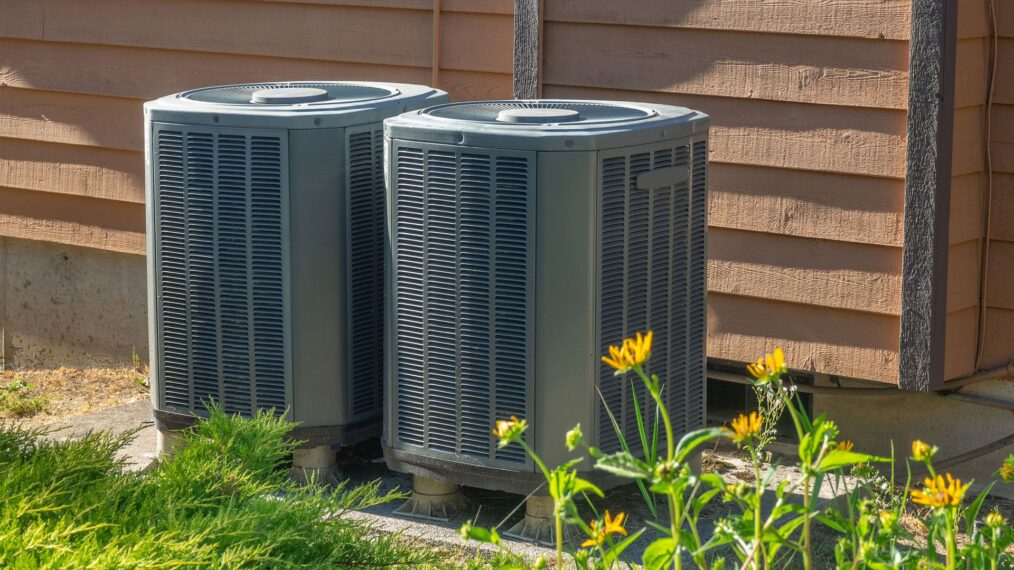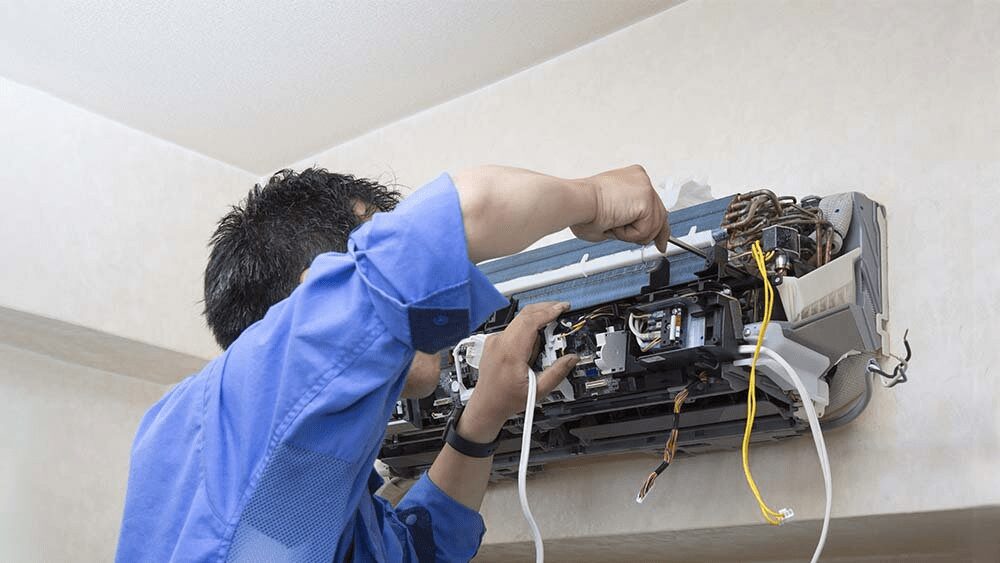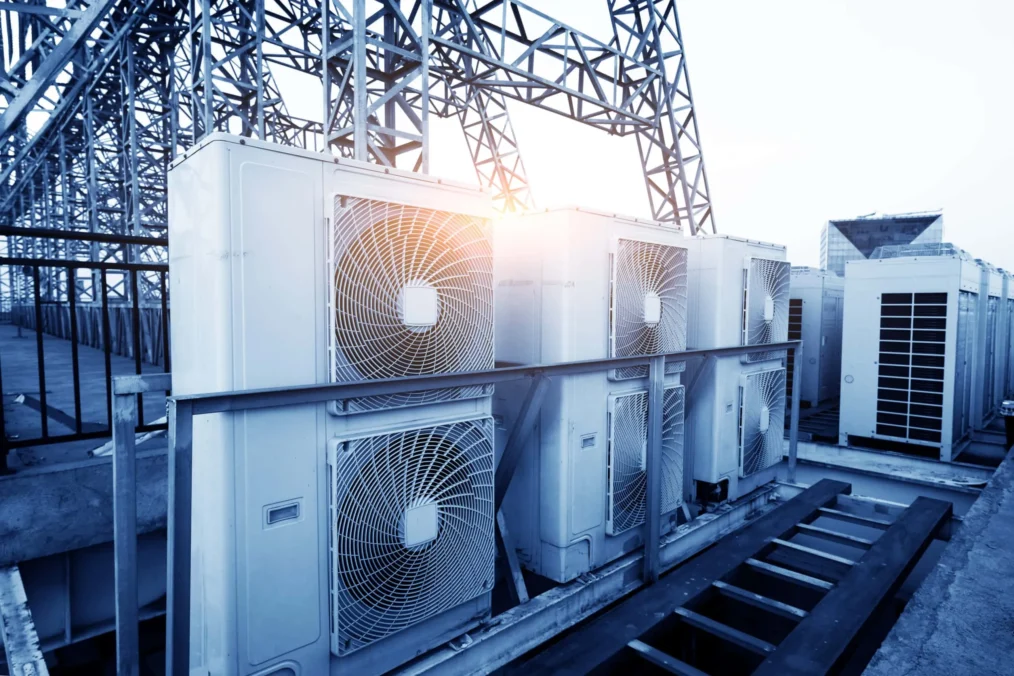Key Takeaways:
- HVAC systems consist of four main components: heating unit, cooling unit, ductwork, and control system.
- The size and type of heating and cooling units impact energy consumption and system efficiency.
- Regular maintenance and replacement of worn-out parts are essential for optimal HVAC performance and longevity.
- Common HVAC problems include insufficient airflow, strange noises, and fluctuating temperatures.
- Choose HVAC supplies stores based on credibility, knowledgeable staff, and product range.
- A diverse product selection allows for customized solutions and better value in HVAC systems.
- Online stores offer convenience and resources, while brick-and-mortar stores provide real-time consultation and product inspection.
- Source HVAC components from reputable brands known for quality and durability, supported by warranties.
- Product reviews provide valuable insights into performance; analyze patterns rather than isolated opinions.
- Examine packaging and seller reputation to identify counterfeit or low-quality HVAC parts.
- Understand pricing strategies to make informed purchasing decisions; research is essential.
- Timing purchases around seasonal discounts can lead to significant savings on HVAC supplies.
- Building relationships with suppliers can result in exclusive discounts and tailored service.
Understanding Your HVAC System: A Guiding Compass
The Anatomy of HVAC: What You Need to Know

Heating, ventilation, and air conditioning (HVAC) systems are integral to creating a comfortable indoor environment in both residential and commercial spaces. At their core, HVAC systems typically consist of four main components: the heating unit, cooling unit, ductwork, and the control system. The heating unit can range from traditional furnaces to modern heat pumps, which use electricity to move heat into or out of a building. The cooling unit, often an air conditioner, works by evaporating refrigerant, absorbing heat from the indoor air, and releasing it outside. Ductwork serves as the transportation system for conditioned air; well-designed ductwork is essential for effective airflow and energy efficiency. The control system, predominately an automated thermostat, manages temperatures based on your desired settings, providing essential oversight and adjustments to the system’s operation.
How Different Parts Influence System Performance
Each component of an HVAC system plays a critical role in its overall effectiveness and efficiency. For instance, the type and size of the heating and cooling units significantly influence energy consumption. Undersized units must work overtime to reach the desired temperature, leading to higher wear and tear and increased utility bills. Conversely, oversized units may cycle on and off too frequently, reducing efficiency and comfort due to temperature fluctuations. The ductwork also impacts performance; poorly designed or installed ducts can lead to substantial energy losses, affecting airflow and forcing the system to work harder. Regularly scheduled maintenance and timely replacement of worn-out parts are crucial for maintaining effective performance, prolonging the lifespan of the system, and ensuring that energy costs remain manageable.
Troubleshooting Common HVAC Problems

Recognizing and troubleshooting common HVAC issues can save homeowners and business owners significant time and money. Some frequent problems include insufficient airflow, strange noises, and fluctuating temperatures. Insufficient airflow can often be traced back to dirty or clogged filters, which should be inspected and replaced regularly. Strange noises, such as banging, hissing, or clicking, could indicate mechanical issues, such as loose components or failing motors, which warrant immediate professional attention. Lastly, if you notice fluctuations in temperature, it may suggest that your thermostat is malfunctioning, the system may be improperly sized, or there could be ductwork obstructions. By familiarizing yourself with these issues and maintaining a proactive approach, you can mitigate significant repair costs and enhance system longevity.
Deciphering Your HVAC Supplies Store: A Necessary Treasure Map
What Makes a Store Stand Out in the Ocean of Choices?
In the competitive landscape of HVAC supplies, various factors distinguish a top-tier supplier from the rest. First and foremost, credibility and reputation play a pivotal role; a reputable store often has extensive experience in the industry, backed by positive customer testimonials and reviews. Furthermore, knowledgeable staff are invaluable assets. When searching for HVAC supplies, engage with employees who can provide expert advice, accurate product specifications, and tailored recommendations based on your unique needs. Additionally, consider the range of products offered. A store that embodies a comprehensive inventory of HVAC parts, equipment, and accessories tends to provide a more gratifying shopping experience. Moreover, their engagement in providing high-quality products, competitive pricing, and efficient services will make a significant difference in your purchasing decision.
The Importance of Product Variety for Customized Solutions
A well-stocked HVAC supplies store offers a variety of products that cater to different HVAC system configurations and client preferences. This variety allows consumers to choose customized solutions that best align with their specific requirements. From different sizes of air filters, a vast selection of thermostats, to an array of ductwork components and maintenance supplies, a broader assortment enables end-users to make informed decisions when it comes to repair, replacement, or enhancement of their HVAC systems. Furthermore, the presence of energy-efficient products and environmentally friendly options can appeal to eco-conscious consumers seeking to reduce their carbon footprint. An exhaustive product line also encourages competitive pricing, allowing consumers to find the best value while meeting their specific needs.
Online vs. Brick-and-Mortar: Where to Shop for HVAC Supplies?

As technology continues to evolve, the debate surrounding online versus brick-and-mortar retail spaces is ever-present. Online stores offer unparalleled convenience, allowing customers to browse extensive inventories, compare prices, and read product reviews from the comfort of their homes. Online merchants often have lower overhead costs, translating to potentially better pricing for consumers. Furthermore, many online retailers provide vast resources, including how-to guides, video tutorials, and customer support, creating a valuable educational experience. However, brick-and-mortar stores present their own unique advantages. They allow customers to physically inspect products, consult in real-time with knowledgeable staff, and receive immediate assistance when embarking on DIY projects. Ultimately, the decision may depend on individual circumstances, including the urgency of the requirement, personal shopping preferences, and the complexity of HVAC systems.
Quality Control: Differentiating the Diamonds from the Dust
Identifying Reliable Brands and Manufacturers
The quality of HVAC components directly affects the performance and longevity of your system. This fact underscores the necessity of sourcing products from reliable brands and manufacturers known for their craftsmanship and durability. Well-regarded brands often invest significantly in research and development, ensuring their products meet rigorous industry standards. Look for manufacturers with established reputations and positive customer feedback, particularly those backed by industry certifications, such as Energy Star ratings, which indicate high energy efficiency and reliability. Additionally, exploring warranty offerings can serve as an indicator of a manufacturer’s confidence in their product quality. A robust warranty period often reflects the brand’s commitment to their clients and the reliability of their manufacturing practices.
The Role of Product Reviews in Your Decision Making
In the age of information, product reviews serve as an essential tool for consumers when selecting HVAC supplies. Reviews provide valuable insights and firsthand experiences of other customers, illuminating the strengths and weaknesses of specific products. When analyzing reviews, it’s crucial to seek out patterns over isolated opinions. A product with consistently high reviews can indicate superior performance and reliability, while multiple negative reviews may reveal potential issues or flaws. Platforms such as consumer review websites and forums focused on HVAC topics can provide unfiltered insights. In turn, allowing potential buyers to understand the practical aspects of products in real-life situations significantly enhances decision-making accuracy and confidence.
How to Spot Counterfeit or Low-Quality Parts
With the allure of lower prices often drawing customers in, identifying counterfeit or low-quality parts is critical for maintaining your HVAC system’s integrity. Begin by examining the packaging; authentic products should feature clear branding, high-quality materials, and proper labeling. Research the seller’s reputation—purchasing from established retailers, whether online or brick-and-mortar, will typically reduce the risk of encountering counterfeit items. Additionally, pay attention to the price; if a deal seems too good to be true, it likely is. Finally, familiarize yourself with the manufacturer’s original specifications and product features; discrepancies in performance, warranty coverage, or physical attributes may signal a low-quality alternative. By employing due diligence, you can safeguard your HVAC system from potentially disastrous consequences arising from subpar components.
Maximizing Your Investment: Getting the Best Bang for Your Buck
Understanding Pricing Strategies: More Than Just a Number

Comprehending pricing strategies utilized by HVAC suppliers is vital for making smart purchasing choices. Factors such as brand recognition, product quality, and supply chain dynamics significantly influence the price of HVAC supplies. While it’s tempting to equate high price with high quality, it’s essential to conduct thorough research to validate this assumption. Bargain prices might mislead you into believing you’ve found a good deal, when, in reality, you might be overlooking critical qualities, such as product durability and manufacturer support. Additionally, consider the long-term benefits of investing in higher-quality products, which may lead to fewer repairs and longer life expectancy, ultimately saving on costs associated with replacement and maintenance.
Seasonal Discounts and Sales: Timing Your Purchases
Timing your HVAC supply purchases can lead to significant savings. Many suppliers offer seasonal discounts and clearance sales, particularly during off-peak months when demand tends to diminish. For example, the end of summer and winter seasons often coincide with markdowns on air conditioning and heating equipment, respectively, providing the perfect opportunity for savvy shoppers to make their purchases at reduced prices. Sign up for newsletters or follow favorite suppliers on social media to stay informed about promotional offers and exclusive sales events. Additionally, consider utilizing advanced purchasing strategies, such as bulk buying or planning major upgrades in advance, to capitalize on deals that offer substantial discounts.
Building Relationships with Suppliers for Long-Term Gains
Establishing a robust relationship with your HVAC supplies store can yield numerous advantages that extend beyond mere transactions. Regular customers often gain access to exclusive discounts, priority service, and valuable industry insights provided by knowledgeable staff members. A good rapport can foster transparency, allowing you to communicate your specific needs effectively while receiving tailored recommendations from experts familiar with your unique situation. Furthermore, maintaining long-term relationships with suppliers can enable better negotiation opportunities in pricing and service agreements, ultimately yielding significant savings over the lifespan of your HVAC system. Trust, loyalty, and mutual respect can pave the way for a beneficial partnership that supports your HVAC needs for years to come.




